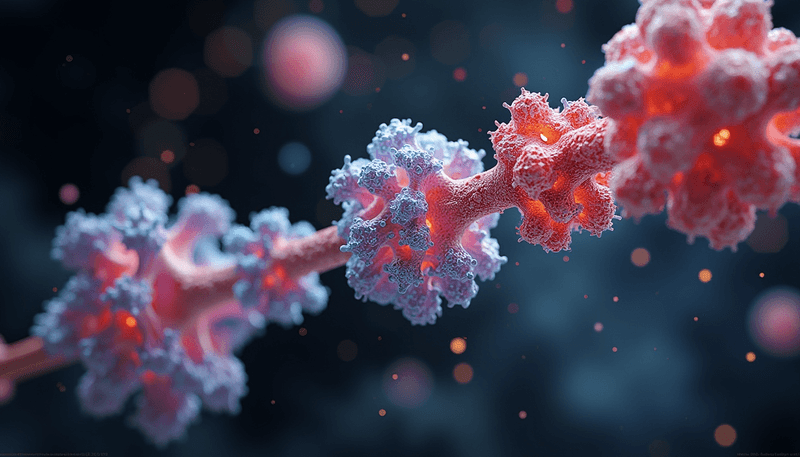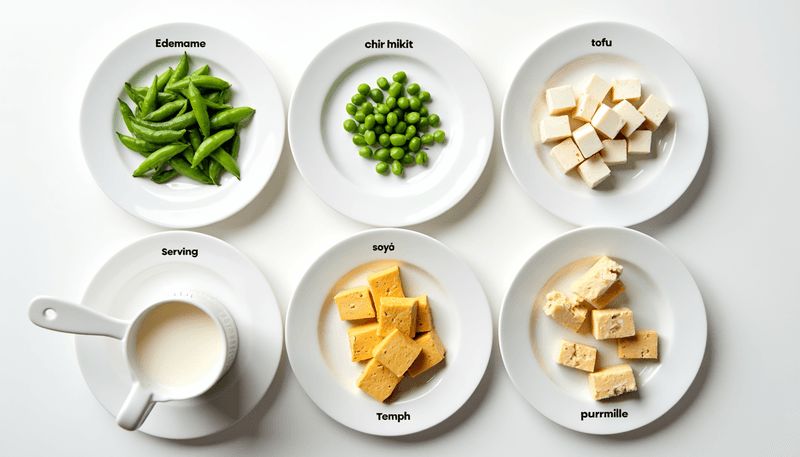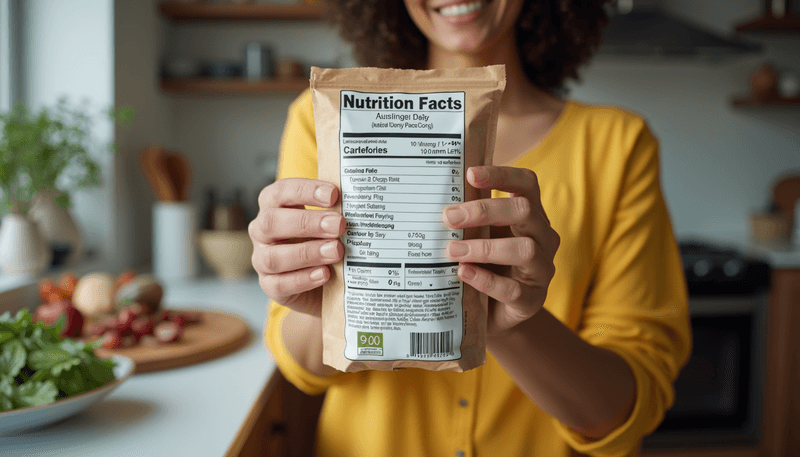Soy Power: Friend or Foe?

That morning soy latte you're sipping might be doing more than just giving you a caffeine boost. As a women's health physician turned science communicator, I've noticed increasing questions from my readers about soy products and their effects on hormonal health. New research reveals fascinating insights about genistein, a compound found in soy, and its complex relationship with women's health.
The Two Faces of Soy: Understanding Genistein's Double Nature
Let's start with what might sound like a paradox: genistein, the main active compound in soy, can act as both a friend and potential foe to your body. It's what scientists call a phytoestrogen - a plant-based compound that mimics estrogen in our bodies. Think of it as a key that can fit into your body's estrogen locks (receptors), but doesn't work exactly the same way as your natural estrogen.
Have you ever wondered why Asian women traditionally experience fewer menopausal symptoms than Western women?
The answer might lie in their lifelong consumption of moderate amounts of traditional soy foods. Studies show that women in Japan and Korea, where soy consumption is highest, report fewer hot flashes and better bone health during menopause.
The Sweet Spot: Finding Your Optimal Soy Intake
The key finding from current research is that genistein's effects are highly dose-dependent. Think of it like watering a plant - too little water and it wilts, too much and it drowns. The same principle applies to soy consumption.
Here's what the science suggests for optimal intake:
- Moderate consumption (1-2 servings daily) of traditional soy foods can offer protective benefits
- Excessive intake (especially through supplements) might lead to unwanted effects
- Food sources are preferred over isolated supplements
When was the last time you checked the soy content in your processed foods?
I remember counseling Sarah, a 35-year-old patient, who was consuming multiple soy products daily without realizing it - soy milk in her coffee, protein bars with soy isolate, and processed foods containing soy ingredients. We worked together to balance her intake and focus on whole soy foods instead.
Practical Applications: Making Soy Work for You
The research points to several practical ways to incorporate soy beneficially into your life:
-
Choose whole soy foods:
- Edamame
- Tempeh
- Traditional tofu
- Minimally processed soy milk
-
Time your consumption:
- Space soy foods throughout the day
- Consider your life stage (particularly relevant during perimenopause)
- Avoid taking iron supplements with soy foods as they can interfere with absorption
-
Read labels carefully:
- Look for whole soy ingredients
- Be aware of hidden soy in processed foods
- Check supplement contents
Special Considerations: When to Be Extra Cautious
While moderate soy consumption is generally safe, some situations warrant extra attention:
- If you're taking thyroid medication: Space soy consumption away from your medication times
- If you have a history of hormone-sensitive conditions: Consult your healthcare provider
- If you're pregnant or breastfeeding: Stick to moderate amounts of whole soy foods
Do you know anyone who has noticed changes in their health after adjusting their soy intake?
The research on genistein continues to evolve, but one thing is clear: context matters. Your individual health status, age, and overall diet all play crucial roles in how soy affects your body.
Take Action Today: Start by doing a simple audit of your current soy intake. List all the soy-containing foods you consume in a typical day. Are they whole food sources or processed forms? This awareness is your first step toward making informed choices about soy consumption.
Remember, the goal isn't to eliminate or maximize soy intake, but to find your personal balance. Consider working with a healthcare provider who can help you determine the right amount for your specific situation.
What small change in your soy consumption could you implement this week?

Dr. Anya Sharma, MD
Dr. Anya Sharma is a board-certified gynecologist with over a decade of experience specializing in women's health and patient education. She graduated from Johns Hopkins School of Medicine and completed her residency in Obstetrics and Gynecology at a top hospital in New York City. With a passion for empowering women, Anya transitioned to content creation to provide accessible, evidence-based information on health topics relevant to mid-aged women. Her empathetic and pragmatic approach combines medical expertise with relatable insights, making her a trusted voice in the field.







